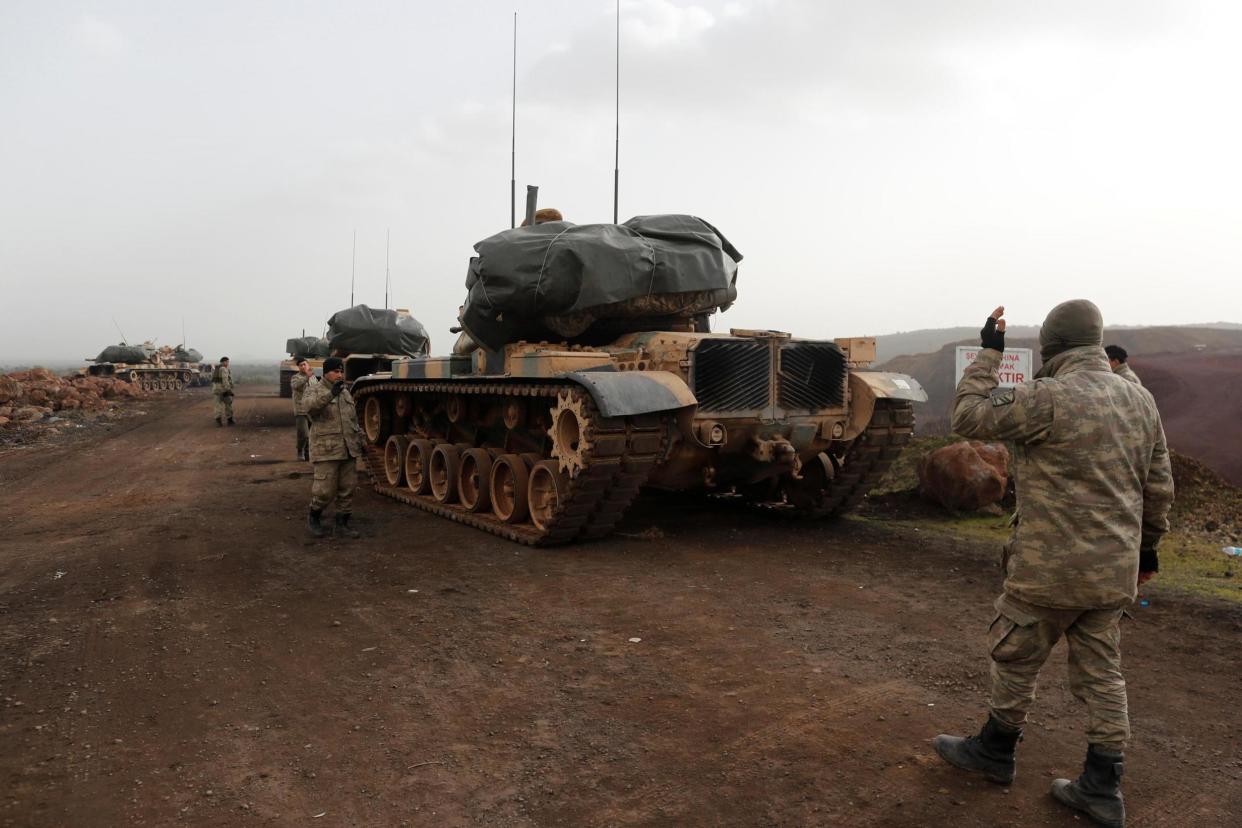Turkey’s assault on Syria will only lead us into another crisis

The last thing Syria needs right now is more war but that is what it is going to get as Turkish troops cross the border to invade the Syrian Kurdish enclave of Afrin.
This could be the opening of a new phase in the Syrian conflict since Turkish President Recep Tayyip Erdogan says he regards the attack as the first step in the elimination of all Kurdish-held territory in Syria.
Erdogan’s threat turns the Turkish assault into the beginning of an international crisis because the Kurdish forces he wants to destroy are the main ally of the US in Syria against so-called Islamic State. It was Kurdish ground troops backed by US air strikes and aided by US advisers that captured the IS-held city of Raqqa last year in four months of savage fighting.
If Turkey does go to war against the Kurds in Syria, then the US will have no alternative but to abandon its only reliable allies in Syria or use military force to stop a fellow member of Nato — on whose territory it has based nuclear weapons.
The Nato connection is looking more and more fragile as Erdogan gives priority to defeating Kurdish nationalism in Syria as he does in Turkey. His anti-Americanism is further fuelled by his suspicion that the US was complicit in the military coup that almost overthrew him in 2016.
A conflict was always probable between Turkey and the Syrian Kurds who took advantage of the retreat of the Syrian army in 2012 to gain control of their own territory. This area has steadily grown in size as the Kurdish paramilitary forces drove IS out of its strongholds over the past three years.
But it was the US that triggered the crisis with Turkey last week when it announced that it would be training 30,000 border control guards that would in practice be dominated by the Kurds. In the face of furious objections from Turkey, the US seemed to back down. But US Secretary of State Rex Tillerson then said that it would keep its military presence in Syria permanently as a check to stop the advance of the Syrian army and to limit the influence of Iran.
The problem is that this looked to Turkey and other players in Syria as being an American guarantee of a Kurdish statelet in northeast Syria. Russia seems to have decided that the Kurds were becoming full-time American proxies and started withdrawing its military observers in Afrin whose presence had previously, along with the Russian airforce, prevented a Turkish incursion.
The lesson here is that so long as the war in Syria goes on it has the capacity to ignite another crisis.

 Yahoo News
Yahoo News 
